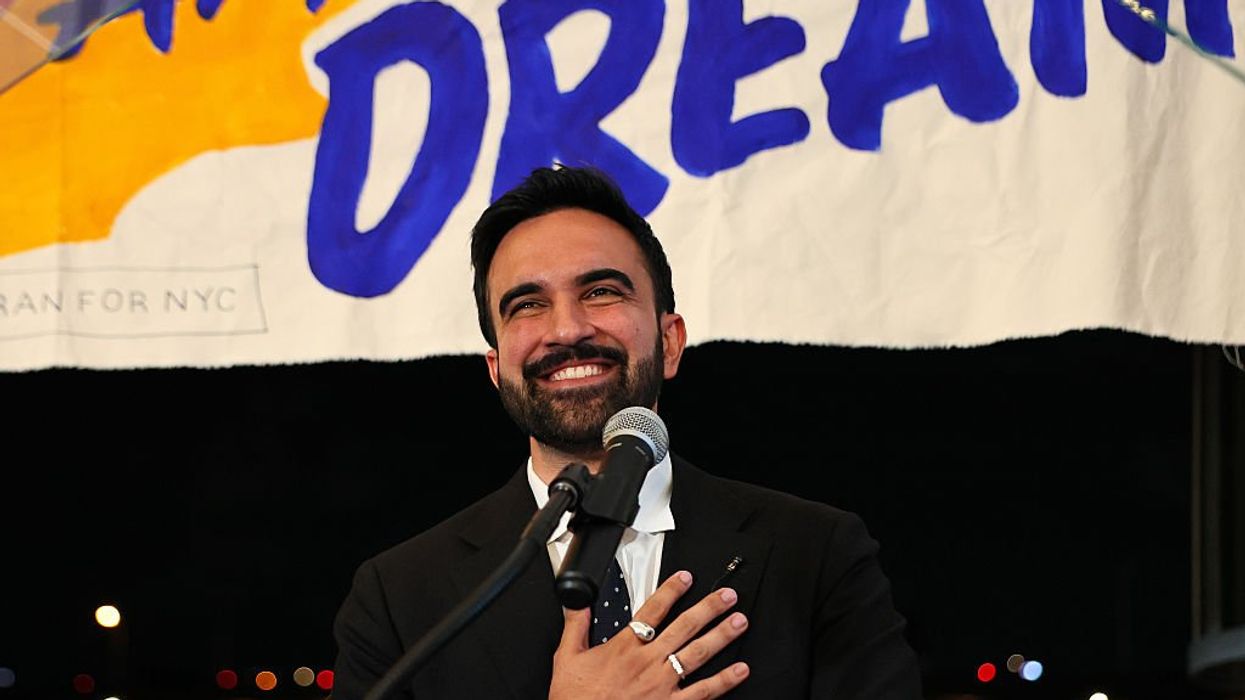© 2025 Blaze Media LLC. All rights reserved.
Israel Releases 550 More Palestinian Prisoners to Complete Schalit Exchange
December 18, 2011
Sunday's release of 550 prisoners completed the swap, the most lopsided in Israel's history.

(The Blaze/AP) Israel released hundreds of Palestinian prisoners late Sunday, the second and final phase of a swap with Gaza Hamas militants that brought home an Israeli soldier after five years in captivity.
Under the Egypt-brokered deal, Israel agreed to exchange a total of 1,027 prisoners for Sgt. Gilad Schalit, who was captured by Gaza militants in June 2006. Schalit returned home in October when Israel freed the first batch of 477 prisoners. Sunday's release of 550 prisoners completed the swap, the most lopsided in Israel's history.
The release Sunday night was not infused with the same drama as the first phase, since the most significant players in the trade had already been freed.
The Oct. 18 return of Schalit, who appeared pale and thin but otherwise healthy, was the first public sighting of him since his capture, and the plight of the young man had captured Israel's attention for years. Schalit has mostly stayed out of the public eye since returning home.

The prisoners freed in the first round included dozens of militants serving life sentences for involvement in bus bombings and other deadly attacks on Israeli civilians that killed hundreds. Their release set off celebrations in the Palestinian territories, particularly Hamas' Gaza stronghold.
The release took place quietly under the cover of darkness, as most of the prisoners descended from buses and made their way into the West Bank and Gaza.
In Gaza, hundreds of well-wishers greeted the freed prisoners by waving Palestinian flags and shooting guns in the air. "I am so glad that I am back, this is a real victory," said released prisoner Kamal Madheem, 40.
"We managed to get 20 percent of our prisoners released from Israeli jails in exchange for one soldier," Hamas spokesman Abu Obeida said in Gaza. "We are going to continue our efforts to get all prisoners released," he said.
In Ramallah, large crowds greeted the prisoners with cheers. Relatives hugged their loved ones and waved Palestinian flags. Some called for militants to abduct more Israelis.
Saida Suleiman was welcoming back her son who was jailed for 18 months for throwing firebombs at Israelis. "I am so happy, I don't want more happiness than this," she said.
Under the terms of the deal, Israel chose the prisoners to be freed Sunday. Prison officials said most were serving light sentences or near the end of their terms, and only 41 were returning to Gaza.
More than 500 were sent to the West Bank, which is ruled by Hamas' rival, President Mahmoud Abbas, and most of them were believed to be linked to Abbas' Fatah movement. Israel is interested in bolstering Abbas at a time when Islamic groups like Hamas are gaining in power throughout the Middle East. Hamas enjoyed a huge boost of popularity following the October release.
A few hours earlier, a large group of Palestinians threw rocks and firebombs at Israeli troops at the West Bank checkpoint near the city of Ramallah, where the prisoners were released. The military said one soldier was injured.
The Palestinians have been divided between two rival governments since Hamas expelled Abbas' forces and seized control of Gaza in 2007. Abbas, who favors a negotiated peace settlement with Israel, has governed only in the West Bank since then.
"This phase of the swap is shallow, because most of those coming out had served short sentences," said Issa Karake, the prisoners affairs minister in the West Bank government. "It did not live up to the expectations of the Palestinians."
In Gaza, Hamas spokesman Fawzi Barhoum said the movement welcomed the release of all prisoners, regardless of their political affiliation. "We are proud of this great achievement," he said.

Israeli-Palestinian peace talks have been frozen for three years, in part because of continued Israeli settlement construction in the West Bank and east Jerusalem. The Palestinians claim both territories, captured by Israel in the 1967 Mideast war, as parts of a future state.
On Sunday, Israel's Housing Ministry published advertisements seeking contractors to build some 1,000 apartments in both areas. The apartments were approved long ago.
Want to leave a tip?
We answer to you. Help keep our content free of advertisers and big tech censorship by leaving a tip today.
Want to join the conversation?
Already a subscriber?
more stories
Sign up for the Blaze newsletter
By signing up, you agree to our Privacy Policy and Terms of Use, and agree to receive content that may sometimes include advertisements. You may opt out at any time.
Related Content
© 2025 Blaze Media LLC. All rights reserved.
Get the stories that matter most delivered directly to your inbox.
By signing up, you agree to our Privacy Policy and Terms of Use, and agree to receive content that may sometimes include advertisements. You may opt out at any time.





